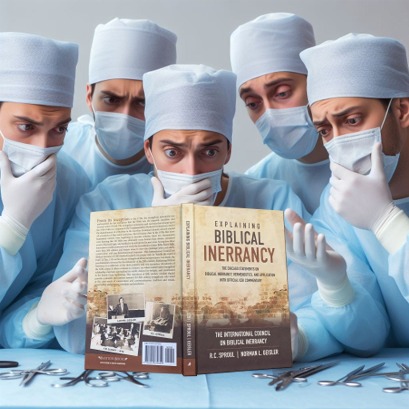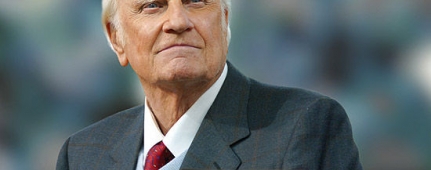
At the 75th meeting of the Evangelical Theological Society, Dr. Michael Licona will deliver a talk titled. . .
The Chicago Statement on Biblical Inerrancy Needs a Facelift: A Fresh Look at Biblical Inerrancy. [Ref.]
Does the Chicago Statement need a facelift? Should it be revised even if we wanted to? Dr. Bill Roach, co-author of the book Defending Inerrancy, explores these questions in depth at https://youtu.be/J2EO5juqzIg:
Although we haven’t read Licona’s paper yet, we may presume that by “facelift,” Licona means making the CSBI (Chicago Statement on Biblical Inerrancy) more vague and less restrictive. In the past he judged that CSBI as having “a fairly good, though imperfect, definition of what biblical inerrancy is and is not,” while criticizing it as having “over-defined” inerrancy. Ultimately, he preferred the much shorter statement on biblical inerrancy in the Lausanne Statement for the sake of its vagueness and flexibility in defining inerrancy. [1]
For forty years, the Evangelical Theological Society (ETS) has held the CSBI by the International Council on Biblical Inerrancy (ICBI) as their standard for defining inerrancy. To be a member of ETS, one has to affirm inerrancy as explained by the CSBI. . .
ARTICLE III: DOCTRINAL BASIS
The Bible alone, and the Bible in its entirety, is the Word of God written and is therefore inerrant in the autographs.
https://www.etsjets.org/about/constitution#A3
For the purpose of advising members regarding the intent and meaning of the reference to biblical inerrancy in the ETS Doctrinal Basis, the Society refers members to the Chicago Statement on Biblical Inerrancy (1978). The case for biblical inerrancy rests on the absolute trustworthiness of God and Scripture’s testimony to itself. A proper understanding of inerrancy takes into account the language, genres, and intent of Scripture. We reject approaches to Scripture that deny that biblical truth claims are grounded in reality.
https://www.etsjets.org/about/membership_requirements
Soon after adopting the CSBI, the ETS used its standard of inerrancy to remove a member from the ETS. Dr. Robert Gundry had published a book that used genre criticism (centering around Jewish Midrash) to dehistoricize a historical passage in Matthew’s Gospel. On 10/20/1983, the ETS Ad Hoc Committee on critical scholarship recommended unanimously for the adoption of the ICBI Statements on Inerrancy (CSBI, 1978) and Hermeneutics (CSBH, 1982) and judged that Gundry’s view were inconsistent with these statements. The members of the ETS voted and 70% asked Gundry to leave the ETS and 30% voted for him to remain. [2]
Interestingly, Licona published a book in 2011 that did virtually the exact same thing that Gundry had done. He used genre criticism (centering around Greco-Roman bioi) to attempt to dehistoricize the exact same passage in Matthew’s Gospel that Gundry had dehistoricized earlier. When Norman Geisler publicly criticized that part of Licona’s publication, several noteworthy evangelical scholars–W. David Beck, Craig Blomberg, James Chancellor, William Lane Craig, Jeremy A. Evans, Gary R. Habermas, Craig S. Keener, Douglas J. Moo, J. P. Moreland, Heath A. Thomas, Daniel B. Wallace, William Warren, Edwin M. Yamauchi–publicly sided with Licona against Norm. The so-called “Licona Controversy” that ensued proved that the overall climate of evangelical academia had liberalized in the thirty years since the Gundry controversy. The ETS seemed quite sympathetic toward the idea that Licona’s hermeneutic should be allow to trump the ICBI’s parameters (and therefore the old ETS’s parameters) for inerrancy.
As Licona makes a plea to adapt the venerable, old CSBI to the modern, progressive ETS, we should not lose sight of the fact that some of Licona’s published scholarship was challenged by the three last living framers of the ICBI’s CSBI statement (Norman Geisler, R.C. Sproul, and J.I. Packer), some of the original signers of the CSBI (Win Corduan, Walter C. Kaiser Jr., Paige Patterson), and several members of the DefendingInerrancy.com team (Norman Geisler, Bill Roach, F. David Farnell, etc.) Geisler, Sproul, and Packer agreed with a unanimous voice that that some of Licona’s published dehistorization attempts are not compatible with spirit and letter of the ICBI council and their official publications. (Particularly Article XVIII of the CSBI, Articles XII, XV, & XVI of the CSBH, and the corresponding commentaries by Sproul and Geisler in Explaining Biblical Inerrancy for those same articles.)
Does the venerable, old Chicago Statement on Biblical Inerrancy (CSBI) from 1978 need to be adapted to some of the trends in genre-criticism preferred by some scholars in the ETS who have to affirm the CSBI? Or does the ETS need to re-adapt itself to the CSBI and recapture some of the same uncompromising spirit the ETS had in the 1980s? Is the goal to simply give the CSBI a facelift? Or is the old, historic, traditional interpretation of the Bible ultimately on the surgeon’s table? Since 2011, Licona has been one of the leaders in the revolution against the judgments of the conservative evangelical scholars of the ICBI. Norm Geisler, Bill Roach, and others started https://defendinginerrancy.com to try to defend evangelicalism against that revolution.
Licona was the first to recommend a facelift for CSBI. In 2022, Derek Brown and The Gospel Coalition seemed interested in updating the CSBI too. Read more about that at Should the Chicago Statement be Revised?
To learn more about the Gundry controversy, the Licona controversy, and more related to biblical inerrancy, consider Norm Geisler’s book Preserving Orthodoxy: Maintaining Continuity with the Historic Christian Faith on Scripture (Bastion Books, 2017).














